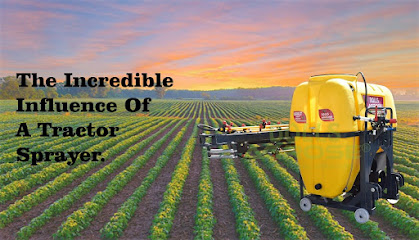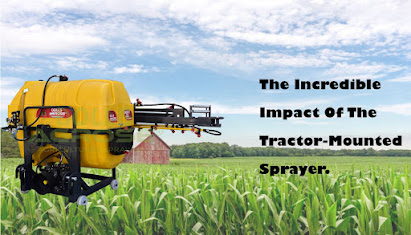The Incredible Influence of a Tractor Sprayer

A tractor sprayer is a type of agricultural machinery used to spray liquid fertilisers, pesticides, and herbicides on crops. A large tank holding the chemical solution, a pump to pressurise the solution, and a spray boom with nozzles mounted on a tractor's back make up the system. In order to change the width and coverage of the spray pattern, a tractor sprayer's boom can be divided into sections that can each be individually controlled. This prevents chemical waste and damage to neighbouring plants while enabling the operator to apply chemicals to the target area precisely and accurately. The most crucial crop production practices are those related to plant protection, using the sprayer to apply the most pesticide products possible. In agriculture, one of the most frequent and important tasks is the application of fungicides, herbicides, and insecticides. The conflict between economic expansion and environmental protection in agricultural production has been caused by trad...
